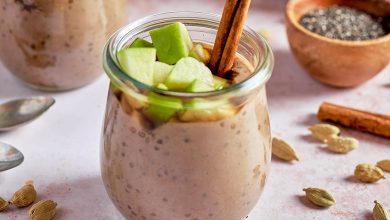How Much Weight Can You Lose on Drugs Like Ozempic?

The commercials are everywhere. So are the social media testimonials and celebrity rumors: Every moderately famous person who drops a few pounds is said to be on it. In a few brief years, Ozempic (semaglutide) has become shorthand for serious weight loss.
This injectable medication — the best-known drug in a category that includes Wegovy and Rybelsus (both semaglutides), and Mounjaro and Zepbound (tirzepatides) — has been a called game-changer for weight management.
If you’re looking for some help in that area, you’ve no doubt wondered: How much weight can you lose on Ozempic?
Weight Loss With Ozempic: How Does It Work?

Semaglutides and tirzepatides belong to a family of pharmaceuticals known as incretin mimetics, which, among other things, make you feel full faster and longer after eating. They work by activating receptors of a gut hormone called GLP-1 (glucagon-like peptide) that helps regulate blood sugar levels and digestion.
“The medications stimulate pancreatic islet cells — where insulin is made — slowing stomach emptying,” explains Spencer Kroll M.D., Ph.D., F.N.L.A., a board-certified internal medicine physician and author of The Ozempic Diet. “The medications also inhibit food cravings and intake.”
He adds: “In patients with type 2 diabetes, there is an impaired insulin response to GLP-1.” These medications address this insufficiency, helping to restore proper pancreatic function.
Because of their action in the body, these drugs can:
- Help the body convert sugar into energy by spurring insulin production in the pancreas
- Help control appetite
- Increase feelings of fullness by acting on the brain, particularly on the hypothalamus, says Aleem Kanji, M.D., a board-certified endocrinologist and obesity medicine specialist in Houston. “The weight loss effect is believed to be due to increased satiety and fullness, ultimately reducing caloric intake,” he says.
Semaglutide and tirzepatide were originally developed as diabetes drugs. As of now, Wegovy (semaglutide) and Zepbound (tirzepatide) are the only ones that are FDA-approved specifically for weight loss.
The other medications are prescribed “off label” — or not as directed — for weight loss.
Tirzepatide vs. semaglutide
In addition to stimulating pancreatic GLP-1 receptors like semaglutide, tirzepatides like Mounjaro and Zepbound have an additional mechanism of action: They stimulate GIP (glucose-dependent insulinotropic polypeptide) receptors as well. Both kinds of incretin receptors are involved in blood sugar control and occur naturally in the gut.
But it’s important to remember these drugs come with inherent limitations.
- Results are not well understood. Although anecdotal reports from celebrities and social media claim drugs like semaglutide can produce substantial weight loss, this class of medications hasn’t been thoroughly studied for weight loss among non-diabetics. There are also concerns that long-term use could lead to nutrient deficiencies and muscle loss, among other issues.
- Weight loss is dependent on continued use. People who took the drugs, then stopped, have reported rebound weight gain. This weight gain often comes in the form of fat, so discontinuing use of the drugs could land users right back where they started.
- Effects on other markers of health are limited. Beyond the benefits of weight loss, these drugs aren’t known to positively impact health indicators like aerobic capacity, muscle strength, or bone health in the ways diet and exercise do.
- They can cost a lot. These drugs often aren’t covered by insurance for weight loss, so they may cost $1,000 or more a month.
Average Semaglutide Weight Loss Results

“The average weight loss with these drugs is around 15 percent of total body weight,” Kroll says. “That compares superiorly to all other known weight-loss strategies, where average weight loss is usually 5 percent to 10 percent of total body weight.”
Here’s a scale of average weight loss on semaglutides based on starting weight:
- 250 pounds = 37.5 pound loss
- 200 pounds = 30 pound loss
- 175 pounds = 26 pound loss
- 150 pounds = 22.5 pound loss
But there’s no guarantee. Pharmaceutical-assisted weight loss doesn’t have a great track record of sustainability. And again, this latest class of weight loss drugs has not been thoroughly tested on non-diabetics, so it’s unclear if weight loss is consistent or lasting, particularly once the drugs are discontinued.
Further, for optimal results, weight-loss drugs are typically prescribed alongside a healthy diet and resistance training, which are proven weight-loss methods on their own.
As side effects are potentially serious and are experienced in some form at a relatively high rate (see below), taking these drugs indefinitely is not only costly but possibly dangerous. Additionally, taking a GLP-1 agonist like Ozempic does not address many of the root causes of weight gain, including inactivity and the consumption of addictive and nutrient-poor ultra processed food and sugar.
Is Ozempic Safe for Weight Loss?
The new class of weight loss medications has a number of concerning consequences ranging from common side effects to unknowns about long-term use. Anyone considering them should discuss the potential risks with a physician before using.
Pancreatic and digestive impacts
“The most common concern of these medications and their side effects is related to their action on the gastrointestinal tract,” Kroll says. “By stimulating the pancreas, sometimes the medications can cause pancreatic inflammation or pancreatitis.
“Other common, but less concerning side effects are changes in bowel habits, manifested as either diarrhea or constipation,” Kroll says. “There can also be a sense of nausea, especially when the medications are started or the dose is adjusted.” These effects occur in up to 50% of users.
Muscle loss
Up to 45% of weight lost as a result of these drugs can come from lean mass (muscle), which may have negative effects on metabolic health (e.g., slower metabolism) and physical strength.
To protect muscle mass, users need to perform resistance training and consume adequate amounts of calories, protein, and micronutrients while using the drug, which may be difficult to achieve with a suppressed appetite.
Cosmetic consequences
Some users of semaglutide and similar drugs have reported “Ozempic face” and “Ozempic butt” — sagging skin resulting from rapid weight loss.
How Can You Lose Weight Sustainably?

If you’re looking for proven and sustainable weight loss that won’t bankrupt you, science has repeatedly found that you can expect it from a well-designed diet and exercise plan.
“The most effective way to sustainably lose weight is through lifestyle changes. That means a change in diet and an increase in physical activity,” says Kroll. “The GLP-1 medications may not cause sustained weight loss any more than any other type of diet, medication, or supplement.”
He warns: “Those patients who have stopped GLP-1 agents have seen weight return. The key to sustained weight loss is lifestyle modification, sometimes in combination with these newer, strongly effective medications.”
Fact is, pharmacology has yet to improve on the pillars of weight maintenance.
“Sustainable weight loss is typically achieved by creating a calorie deficit, which can be accomplished by consuming fewer calories than you burn,” says Gloria Tumbaga, MD, a regenerative medicine physician in Temecula, California.
Some good strategies include:
- A balanced diet. “Focus on whole foods, vegetables, lean proteins, and healthy fats,” Tumbaga advises. “Reduce processed foods, sugary drinks, and excessive snacking.”
- Regular exercise. Incorporate both cardiovascular and strength training exercises into your routine. Aim for at least 150 minutes of moderate-intensity exercise per week.
- Behavioral changes. It’s important to address any emotional and psychological aspects of overeating. “Mindful eating, portion control, and stress management are crucial for long-term success,” Tumbaga says.
- Gradual changes. “Avoid extreme diets or rapid weight loss, as they are less likely to be sustainable,” she adds.
Another key factor, Tumbaga says, is support. When you’re working to lose weight, seeking guidance from a healthcare professional, dietitian, or support groups can help maintain motivation and accountability.
It’s the kind of support you can find on BODi — with workouts for every kind of fitness level, more than 1,000 delicious whole-food recipes to help you eat healthily without feeling deprived, and mindset, motivation classes, and communities that help keep your mind strong and support you on your weight loss journey.



